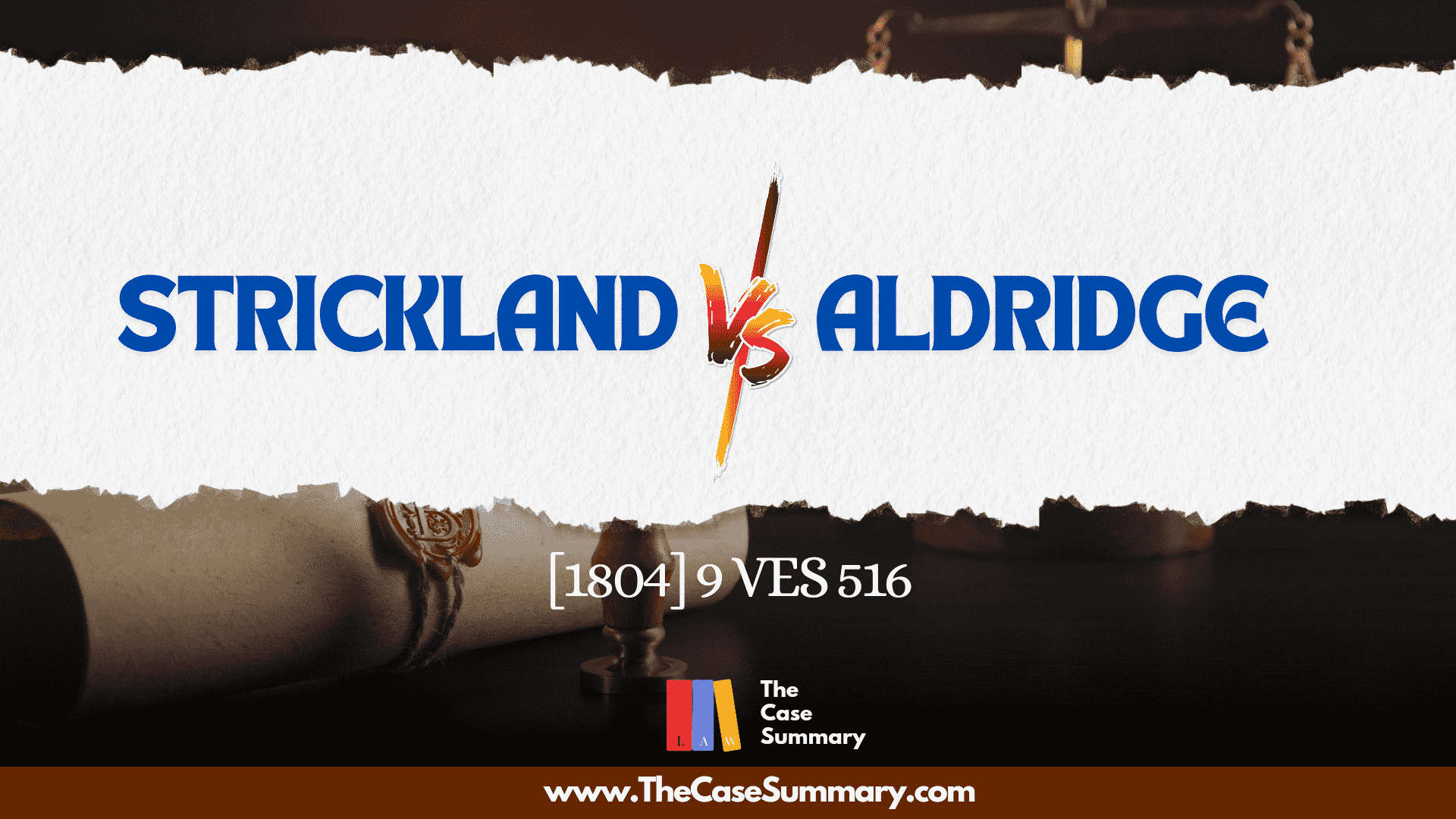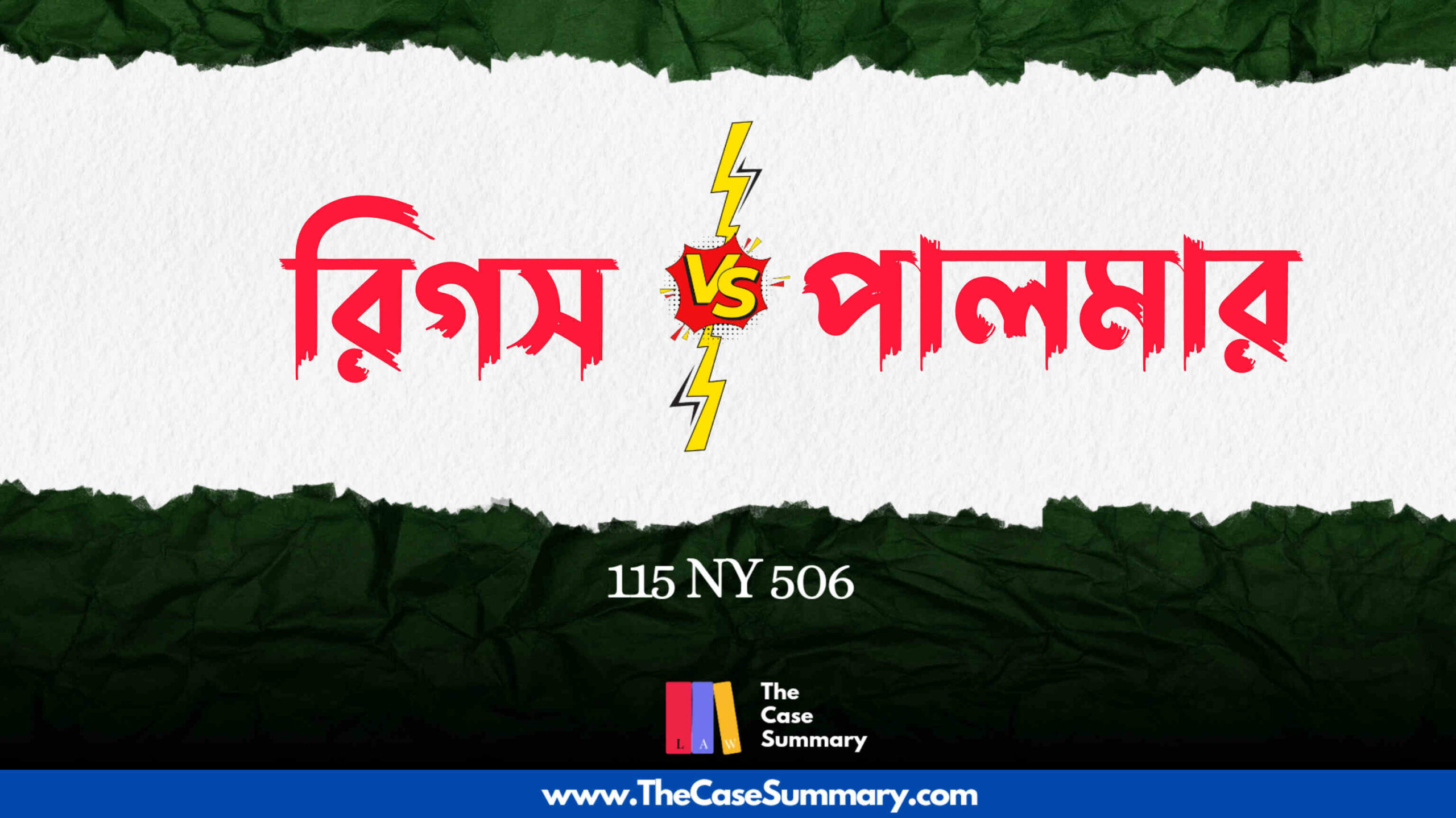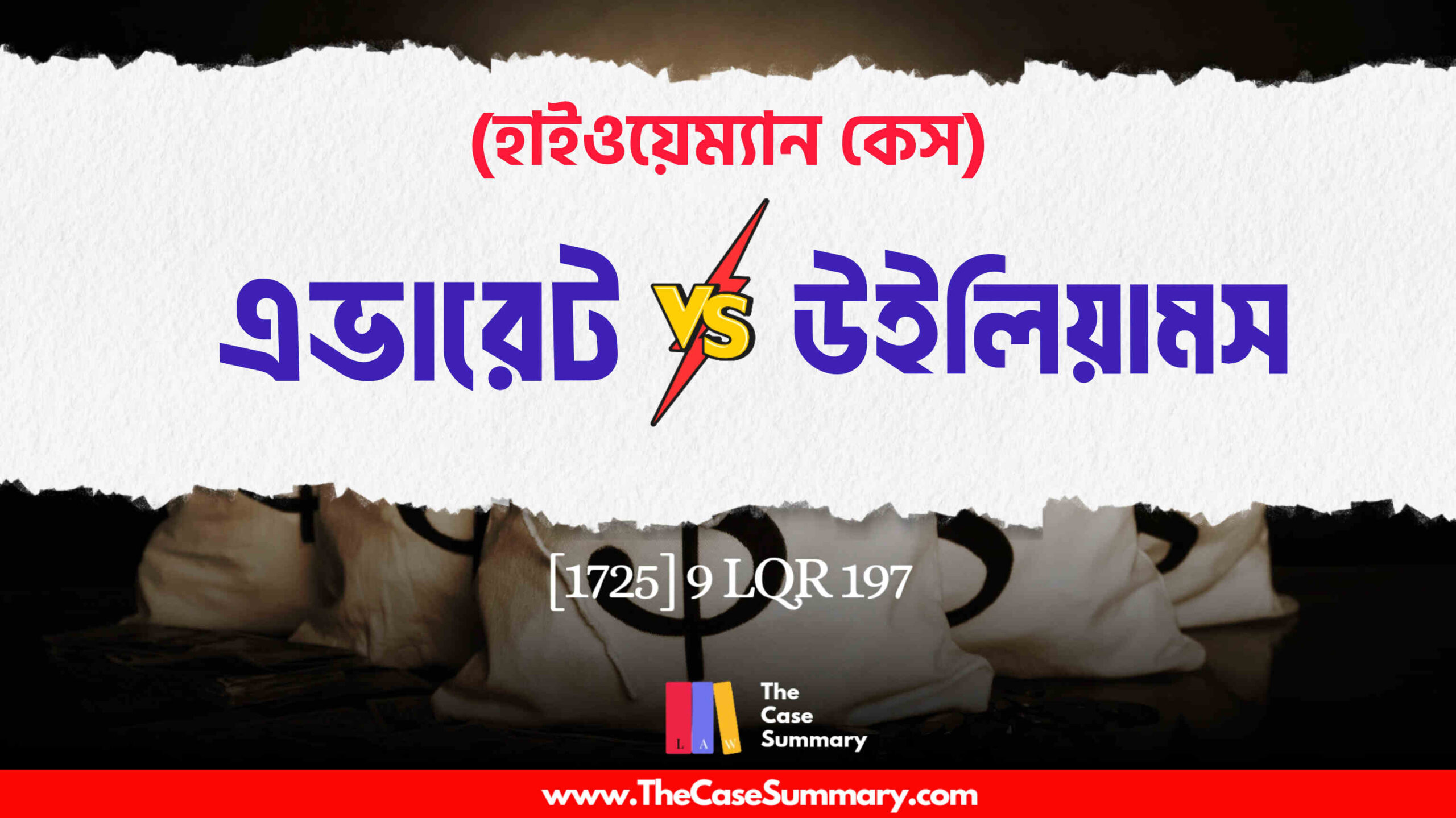Strickland vs Aldridge
Reference : [1804] 9 Ves 516
Jurisdiction : United Kingdom
Plaintiff : Strickland
Defendant : Aldridge
Facts :
A father died, leaving his sons and daughters. The eldest son was entitled to the whole of the land by exclusion of his younger brothers and sisters under the rules of primogeniture. Primogeniture was the common law right of the eldest son to inherit the landed property of his father. But if the father has already divided the property among his children, the property will be divided accordingly, except that the property legally will be in the possession of the eldest son.
In this case, the eldest son promised that his siblings would not be deprived of getting property. However, after the death of their father, the eldest son was entitled to the whole property of his father. Moreover, he did not give any part of the property to his siblings. In this way, the eldest son had induced his father not to make a will, giving a promise to divide the land with his brothers and sisters. So, Thomas Stickland (younger brother) went to equity court and sued against Aldridge, who was the executor of the will, on behalf of Roger Stickland (elder brother).
Issues : How could the law of equity apply here to give a fair judgment?
Decisions :
According to the rules of primogeniture, legally the eldest brother was entitled to the property. However, the Law of Equity gave a fair relief. In this case it was held that if the son had induced his father not to make a will by agreeing to divide the estate with his brothers and sisters, equity would have interfered and compelled him to carry out his promise, because it would have been against conscience to allow the son to keep the benefit of a legal estate which he obtained by reason of his promise. Equity recognized and respected legal rules, but the circumstances of giving a promise by the son to the father had added an element of conscience to the rule, which equity must consider because it acts on the conscience of a person.
Thus, where a court of law missed an important point, equity corrected the law and followed it on the simple principle of conscience. Provisions of law cannot be allowed to be misused or abused or made an instrument of fraud or to perpetuate injustice by creating a breach of trust and a breach of contract.
Relevant Maxim :
Equity Follows The Law : The Latin maxim ‘aequitas sequitur legem’ translates to “Equity follows the law.” This maxim signifies that equity does not override or contradict the law but acts in harmony with it. Equity supplements and interprets legal principles to ensure fairness and justice where the strict application of the law may cause hardship.
Author :
1. Farah Arifin
Note : The Case Summary is a platform by the law students, for the law students. We aim to summarize the facts and decisions of various important cases in both Bangla and English with utmost caution. However, this platform is in no way a replacement for going through the complete judgements by the law students and we discourage any learner from relying on case summaries alone. Thank you



